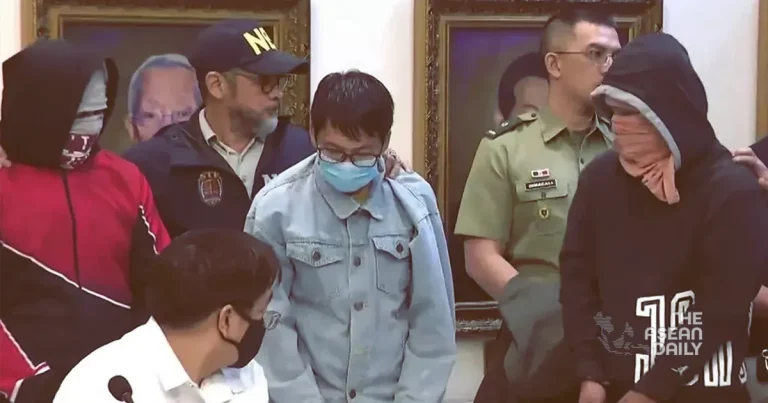21-1-2025 (MANILA) Military officials have unveiled startling connections between several recent security incidents across the Philippines, suggesting a coordinated foreign intelligence operation aimed at mapping out the nation’s critical infrastructure and defence capabilities.
Speaking at a press briefing in Camp Aguinaldo, Rear Admiral Roy Vincent Trinidad, the Philippine Navy’s spokesperson for the West Philippine Sea, revealed that recent events – including the arrest of a suspected Chinese spy, the discovery of multiple underwater drones, and the case of a dismissed mayor with questionable credentials – may be part of a broader intelligence-gathering campaign.
“These seemingly isolated incidents, when viewed collectively, paint a concerning picture,” Trinidad told journalists. “We’re observing what appears to be a calculated effort by a foreign power to conduct comprehensive surveillance of our nation.”
The military’s assessment follows Monday’s announcement by the National Bureau of Investigation regarding the arrest of a Chinese national and two Filipino associates. The group allegedly conducted extensive surveillance of sensitive locations, including military installations, EDCA sites, power plants, and transportation hubs throughout Luzon. Investigators discovered sophisticated equipment capable of generating three-dimensional imagery and precise geographical coordinates of target structures.
This development comes amid growing concerns over national security, particularly following the recovery of five underwater drones from Philippine waters, currently undergoing forensic examination. Additionally, authorities have recently apprehended several foreign nationals possessing counterfeit government identification documents.
In response to these challenges, Colonel Francel Margareth Padilla, AFP spokesperson, announced significant structural reforms within the military. “We’re implementing a comprehensive overhaul of our defence capabilities,” she said. “This includes establishing the AFP Intelligence Command and restructuring our Cyber Command to combat emerging threats in the digital domain.”
The military has also enhanced security protocols at key installations under the General Security of Military Information Agreement, whilst deploying advanced surveillance systems and drone technology to monitor critical areas.
Whilst military officials declined to explicitly name China as the foreign power behind these activities, Trinidad acknowledged the emergence of a clear pattern. “These incidents, whilst not currently posing an immediate threat to national security, raise significant concerns about public safety and order,” he stated.
The revelations come at a time of heightened regional tensions and underscore the growing sophistication of foreign intelligence operations in the Philippines. Military leadership has called for increased public vigilance, emphasising the crucial role of civilian cooperation in maintaining national security.




